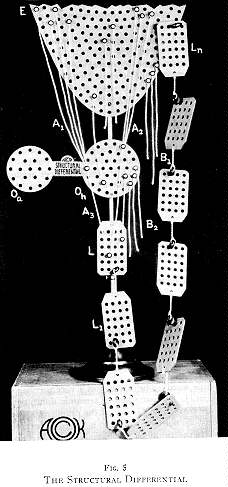 That each of us has survived for many years proves that our senses
inform us fairly reliably about our environment. For example, to
cross the street without getting crushed, it is sufficient to use our
visual and auditory perceptions. With these, we can evaluate if it
is too dangerous to cross. The answer to "Can I trust my senses?"
would be, in this case, "Yes."
That each of us has survived for many years proves that our senses
inform us fairly reliably about our environment. For example, to
cross the street without getting crushed, it is sufficient to use our
visual and auditory perceptions. With these, we can evaluate if it
is too dangerous to cross. The answer to "Can I trust my senses?"
would be, in this case, "Yes."
Another example: I see a high voltage cable lying on the ground. No perceptible sign of danger emanates from it, until I try to touch it (and then it is too late). Thus, for my survival in this case, it is more important not to trust my senses. Here the answer to "Can I trust my senses?" would be "No."
To see the principle in this second case more clearly and generalise it, let us employ the Structural Differential of Korzybski. Consider Fido, whose nervous structure does not allow him to be conscious of abstracting from the event E. Thus he has only the object Oa, abstracted from E via his senses. There is no telling what would happen to Fido if he came upon an electric cable with which he wished to "play." Even though his hearing is more developed than ours, merely crossing the street presents more danger to him than to us. Indeed, the level of E (event) is more significant for survival than the level of O (object), in the natural order of evaluation. Thus my knowledge of the existence of this level is already an advantage. What is more, I am aware that a certain number of significant characteristics are left out (strings B1). Thus I know that my evaluations cannot take these characteristics directly into account. Then what attitude should I adopt? I can, at my own peril, copy Fido in his nervous reactions and remain unaware of the possible importance, for my survival, of these characteristics. Or I can, using the capacities of my brain, study the event level ahead of time and discover these characteristics not otherwise taken into account.
Notice that, in the Structural Differential, the labels L1,...,LN representing verbal levels eventually loop around to E. The higher levels of abstraction (in particular those provided by sciences) enable me to study E and to determine characteristics such as "high voltage," "highly toxic substance," "radioactivity," etc., that are not directly perceptible by our senses. We build tools capable of highlighting these characteristics and we use these tools in high-risk environments (power stations, chemical factories, nuclear power plants, etc.). This mechanism of studying and tool-building, and so consciousness of abstracting, enable us to adapt better to our environment than can Fido. Fido must "trust his senses" because, for him, there is "nothing" else.